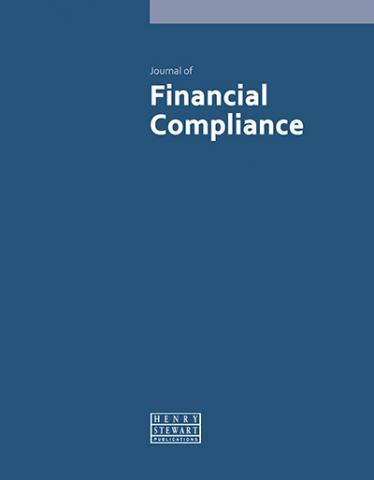"The journal has interesting and thought provoking articles covering a wide range of topics. The articles are written by highly competent participants from the industry that can give a good insight in to its various areas."
AI model risk: What the current model risk management framework can teach us about managing the risks of AI models
Click the button below to download the full text of the article.
Abstract: The rapid adoption of Artificial Intelligence (AI) among financial institutions in recent years creates several opportunities, but also presents significant risks that require adequate risk management. Despite advances in recent years, AI regulation remains fragmented. This creates a challenge for financial institutions when looking for guidance on how to address the emerging risks presented by the use of AI. Given the complexity and speed of revision, AI models tend to propagate and amplify existing model risk. This grants them the potential to be more harmful, and raises important model ethics concerns. This paper discusses how the existing model risk management framework can offer important lessons for financial institutions on how to tackle these emerging risks. Additionally, the paper explores possible enhancements to the model risk management framework in order to address the unique challenges posed by AI models. These include adapting governance and policies, including model ethics considerations; enhancing model risk identification and classification; and updating model life cycles, with an emphasis on data management, model development, validation and monitoring. While the author agrees that AI risks are diverse in nature, the focus of the paper is on the risks derived from the use and development of AI models.
Keywords: model risk; SR 11-7; artificial intelligence (AI); machine learning (ML); model risk management; model life cycle; model ethics
Catarina Souza is Head of Model Development and Review Division at the Bank of England, Prudential Regulation Authority (PRA). Prior to joining the PRA, Catarina was a Senior Expert for Model Risk Management at ING, where she led the implementation of the model risk management framework globally for the bank, with a significant focus on the adoption of Artificial Intelligence (AI) technology. Catarina has over 16 years of working experience, including leading multicultural international teams successfully delivering cross-border projects in the areas of credit risk and model risk management. Prior to joining ING, Catarina worked with S&P Global Market Intelligence, overseeing numerous clients across EMEA and the Americas, managing the development, implementation, maintenance and validation of credit risk models.



